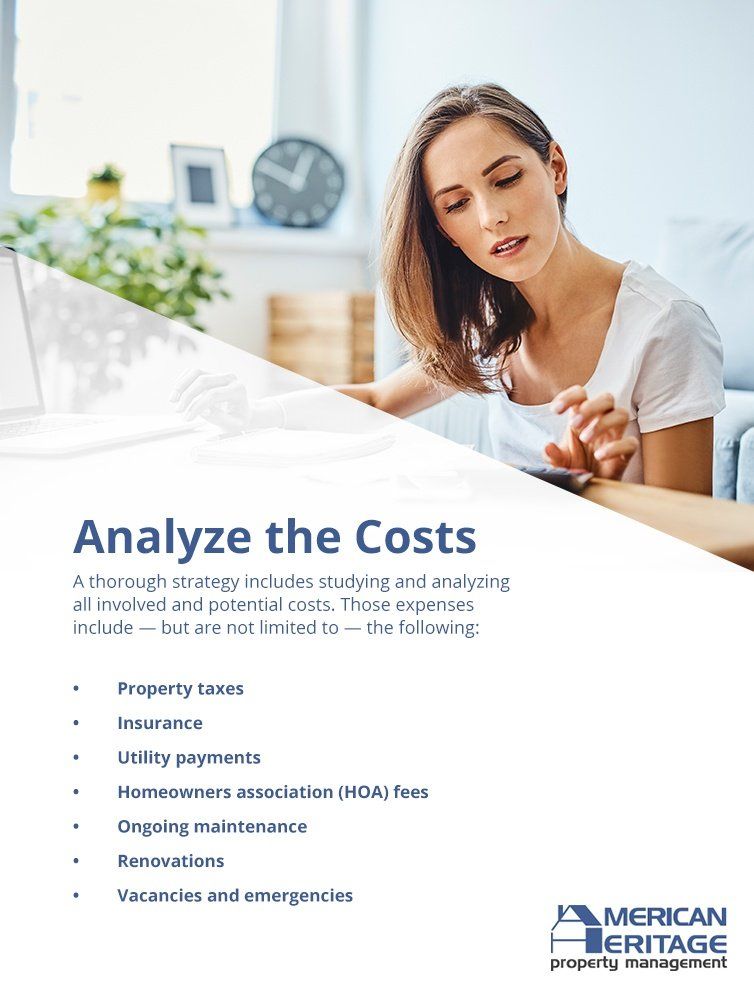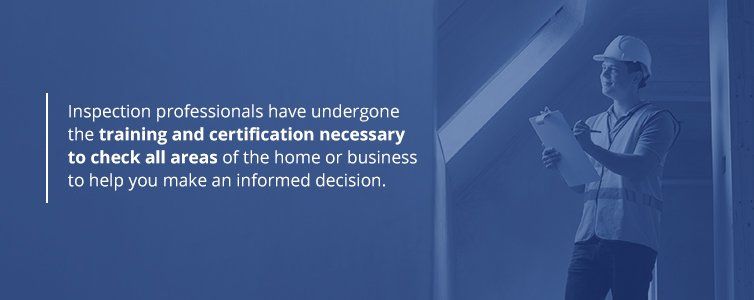Tips for Buying Your First Rental Property in PA

Purchasing and leasing rental property is a popular decision among individual investors because it can be a versatile form of passive income. Why is buying your first rental property in Central PA a good idea? Central PA can be a great place to live and operate a business for several reasons, including its balanced proximity to large cities with small, community-oriented neighborhoods.
Buying a rental property in Pennsylvania can be a sound financial decision as well. Central PA offers various amenities that entice renters, ranging from top-rated restaurants to scenic landscapes.
When you buy an apartment and rent it out or purchase a commercial building you intend to lease, you get to decide how you manage your property — that includes screening tenants , deciding how to market yourself and choosing whether to partner with a property management company that can assist you in your daily operations.
In this guide, we'll discuss what you need to know about how to buy your first rental property, so you can start searching with confidence.
Before You Purchase: What to Look for in Your First Rental Property
When considering your first rental property, take time to research everything about the structure and neighborhood. Do not make the decision lightly — for example, the right location could mean the difference between attracting several potential renters and struggling to gain traction.
Here is how to determine if a rental property is good:
- The homes and businesses surrounding your potential investment property appear well cared for.
- The property is located in a popular or up-and-coming neighborhood.
- The neighbors around the property have glowing opinions of the area and local community.
- The property is close to sought-after school districts, thriving businesses and recreational amenities.
- The crime rate in the area is not too high for you or your tenants.
- The structure is in acceptable or excellent condition.
Tips for Buying a Rental Property in Central PA
1. Analyze the Costs
- Property taxes: The county determines the property tax amount owed, though you should talk to your financial advisor or tax preparer about the possibility of a tax deduction.
- Insurance: Landlord insurance could help protect you in the case of natural disasters and other types of property damage. It can also help you cover the cost of any tenant injuries that might occur as a result of the property damage.
- Utility payments: Many landlords and property owners choose to cover the cost of some utilities for their tenants, such as water, sewer and trash. Consider which utilities, if any, you plan to pay for and determine the monthly cost.
- Homeowners Association (HOA) fees: Some neighborhoods belong to a homeowners association, and you must pay a fee if you own property there. If so, see if the HOA also covers any utilities or amenities.
- Ongoing maintenance: Landlords are responsible for ongoing maintenance both in and around the house or commercial building. Sometimes, this will be as minor as a pack of lightbulbs — and other times, it will be as significant as a new heating, ventilation and air conditioning (HVAC) system. Always make sure you have enough cash flow to cover the cost of routine and emergency repairs.
- Renovations: Depending on the type of property you're investing in and its age, it may need initial repairs or renovations before you put it on the rental market, especially if the structure is unsafe.
- Vacancies and emergencies: At some point, your property may sit vacant between tenants. Always have enough money saved to cover the cost of this vacancy, as well as any emergencies that could arise.
2. Know What You Want
If you're interested in buying and managing your first rental property, you're probably doing so because you want to earn a profit or diversify your assets. However, understanding what you seek as a rental property ownergoes beyond your end goal. You also need to know what kind of property you want to own and what potential tenants you're hoping to attract.
For your first property, the two primary types you need to choose between are commercial and residential. Owning each kind comes with its individual advantages, and their differences go beyond the tenants leasing them:
- Commercial: Commercial property includes retail and office buildings, apartment complexes, hotels, restaurants, malls and more. Many invest in commercial property because it provides longer lease terms and less tenant turnover than residential homes. It might be easier to find responsible tenants with a commercial property because applicants typically represent a business or large corporation. Commercial property deals are often more complex and challenging to navigate, however, especially with complicated zoning laws.
- Residential: Residential property refers to single and multi-family houses, condos and townhomes, as well as undeveloped land lots. Residential property investments are often easier to navigate because of the milder zoning restrictions. Keep in mind that, depending on the length of the lease, residential properties usually have a more frequent turnover rate compared to commercial ones.
So, who do you want to market your property to? Of course, you want your rental to be versatile and appealing to all responsible tenants. However, depending on the location, property type and available amenities, your rental might be particularly attractive to a particular group of people, like students, retirees, families or small business owners. Here's a closer look at which property qualities they might be drawn to:
- Location: If you already have a property in mind, its location can help you determine who might be most interested in renting from you. If you already know the audience you're hoping for, like a small business owner for your commercial space, use this information to help you choose the best location possible. Analyze the property's proximity to hospitals, schools, urban centers, shops, restaurants, parks and more. What is near your property that will entice or push away tenants?
- Property type: What is the rental like? What features does it have that might attract certain renters? Multiple bedrooms, for instance, are a big draw for families. A commercial property with multiple rooms might attract individuals seeking office space.
- Amenities: Finally, what amenities can you use to your advantage when advertising? What makes your property unique? Examples might include a pool, a spacious backyard, a basement or attic space, historic architecture and more.
While you can lease your property to numerous tenants, your target audience is the group on which you will focus your advertising efforts. For example, if your rental is in a college town a few minutes away from campus, you might adjust your marketing for college students seeking housing. To do this, you might use the internet and social media more than you would when advertising a historic home in a small, rural town with no nearby amenities.
3. Understand Local Laws
Your success as a commercial or residential rental property owner largely depends on your ability to research, understand and abide by all laws and regulations surrounding your property and its neighborhood, city, county and state. For example, some laws that all Pennsylvania landlords must follow deal with:
- Equal housing rights
- Marketing and advertising rights
- Credit and consumer checks
- Security deposits and how to establish, collect and return them
- Environmental Protection Agency (EPA) and housing regulations, including the use of lead-based paint
- The number of people who can live or operate on the property
- Actions to take if the lease or your renters violate the law
- Tenant rights, including quiet enjoyment, a safe and habitable home and the right to withhold rent
- Laws for setting the lease, including adequate notice before termination
4. Have the Home Inspected
- The building's structural integrity, including the foundation, windows and doors.
- Cracks or chips in the paint and siding.
- Outdated or incorrectly installed wiring.
- Signs of damage, like standing water, pest infestation, mold and asbestos.
- Roof problems, including holes, missing shingles, cracks and damaged chimneys.
- Poor ventilation, insulation and drainage.
- Broken outlets, light switches and fixtures.
- Plumbing leaks.
- Low water pressure and quality.
- Clogged or missing air filters.
You've Just Bought a Rental Property — Now What?
Understand Your Responsibilities
It takes a lot of time, hard work, organization and attention to detail to own a rental property. Some daily and ongoing tasks you will be responsible for include:
- Advertising your property.
- Finding and securing renters.
- Applicant screening and engaging with tenants.
- Monitoring and scheduling ongoing maintenance and repairs.
- Setting and collecting all deposits, including security and pet deposits.
- Managing payroll for all employees.
- Accepting and depositing rent , as well as following up with tenants.
- Giving tours of the property.
- Staying informed about all safety codes and local laws.
- Hiring and maintaining staff, if applicable.
- Choosing which outside contractors to work with, like construction or repair services.
- Paying any utilities you are covering.
- Upholding all property rules and living guidelines established in the lease.
- Supervising your property and staying aware of what's going on, including safety concerns or difficult tenants.
- Maintaining your insurance.
- Enforcing your eviction policy .
- Responding to phone calls, emails and inquiries from prospective tenants.
- Reacting during emergencies, including pest infestations, natural disasters and fires.
- Using any applicable online software for communicating with tenants.
This list does not include property-specific requirements or other circumstances that often arise during a tenant's lease.
Partner With a Property Management Company
As you can see, managing a rental property is a full-time operation. To stay on top of this day-to-day management, many rental property owners partner with a property management company. Property management companies provide professional tenant services, ensure compliance with laws, respond to all communication, create financial reports and much more.
Property management companies are the ideal hands-off solution if you are an owner who:
- Lives in another town or state from your rental property.
- Has other work or family responsibilities that require your time, attention and resources.
- Wants to enjoy the benefits of property ownership without worrying about the daily duties involved.
- Has more than one rental property.
- Is unfamiliar with how to operate and manage a commercial or residential property.
- Wants some extra assistance for more free time and less stress.
Contact American Heritage Property Management Today
Owning a rental property can be a great way to generate revenue and provide a service for your local community.
Whether you're interested in working with commercial or residential spaces, leasing property requires a great deal of time, attention and work. American Heritage Property Management is a full-service property management company that can help you take control of your Central PA property.
To learn more about AHPM services or get more information about property investment for beginners,
contact a representative today.








